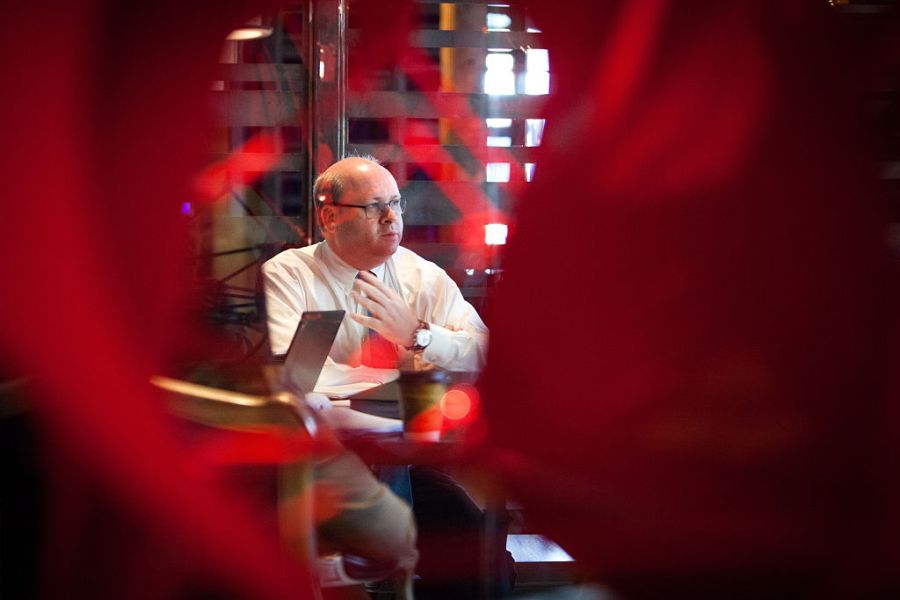
The left’s legal-industrial complex is targeting battleground Wisconsin ahead of the 2024 elections. Democratic election lawyer Marc Elias and friends sue in both state and federal court, groping around for courts friendly to their arguments. The newly elected Wisconsin Supreme Court is proving to be just that, but an Obama appointed federal judge has proven less hospitable.
Recently, the Wisconsin Supreme Court heard arguments about whether Wisconsin law allows the return of an absentee ballot to unmanned drop boxes. The rules never mention drop boxes, but the Left is trying to impose them just two years after the exact same court ruled they were illegal.
In 2022, Elias, brought and lost this same case. At the time when “Top Gun: Maverick” ruled the box office, the court held that in Wisconsin, the law is black and white: a person must return an absentee to a person, the clerk, and not to an inanimate object such as a drop box.
But in another example of their sue-until-blue strategy, the left has returned to the Wisconsin Supreme Court to argue the exact same case again. The astute reader may be thinking, “Courts don’t reconsider cases for no reason. What has changed since April 2022?” The answer is very simple. There was an election in Wisconsin and the court’s makeup has moved to the left, making the forum much more receptive to left-wing arguments.
So here we are in judicial déjà vu, back in the same courthouse, arguing the exact same issues, with the only difference being the new liberal majority on the court.
Why are they pushing so hard for these drop boxes? In addition to in-person voting, Wisconsin allows for absentee voting. Absentee voters can send their ballots through the mail or return them to the district clerk. This is both simple and secure, but the left doesn’t like it. They want the ability to sprinkle unmanned, unsecured and unregulated drop boxes throughout a jurisdiction.
This is convenient because, since state law does not contemplate drop boxes, it sets no standards on how they should be dispersed or when they should be available, leaving the door wide open for partisan gamesmanship and midnight ballot dumps. We have seen problems with “secure” drop boxes in places like Washington that were anything but.
This case continues Elias’ efforts to seize control over election rules by taking election mechanics decisions away from legislatures and moving them to courts. This has been used elsewhere, for example, to prevent Montana from moving its voter registration deadline up by even a single day.
It is also a rerun of the left’s COVID-era argument that if something isn’t banned by statute, it must be allowed. This model was used early and often in places such as Houston to push never-contemplated voting “innovations” such as drive-through voting and 24-hour voting.
Unfortunately, the new Wisconsin court majority appears poised to reverse the court’s prior ruling and take on the task of micromanaging Wisconsin elections. As the legislature’s attorney noted during oral argument, if the court goes down this path, it will get the chance to hear this case a third time when the make-up of the court inevitably changes again.
Things are not all gloom and doom with the courts and Wisconsin, however. Elias recently took a big loss in federal court. This case has to do with another tactic of the left, of digging up old, narrow statutes and applying them to current practices.
This one involves a practice known as “vouching,” a Jim Crow-era voter suppression tactic where, in order to vote, you needed a registered voter to vouch for your qualifications. All too often, for African Americans attempting to vote, no registered voter was willing to make that pledge.
Congress barred vouching in the Civil Rights Act of 1965. No state can now require a voter to prove his qualifications by the voucher of another. Once this practice was banned, it disappeared from our vote process and most people forgot that it ever existed.
But now Elias and team are trying to change the definition of vouching, arguing that a witness signature on an absentee ballot is a vouching requirement and therefore the equivalent of Jim Crow-era tactics to deny African Americans the right to vote.
This would be sad if it weren’t so typical. Fortunately, the Obama-appointed Judge did not buy it and dismissed the case, ridiculing Elias’s arguments in the process.
Don’t expect the left to change its tune. Elias will simply shop for a friendlier court, like the Wisconsin Supreme Court, or some other court that is willing to put partisan politics ahead of the rule of law.
Chad Ennis is the vice president of Honest Elections Project.














